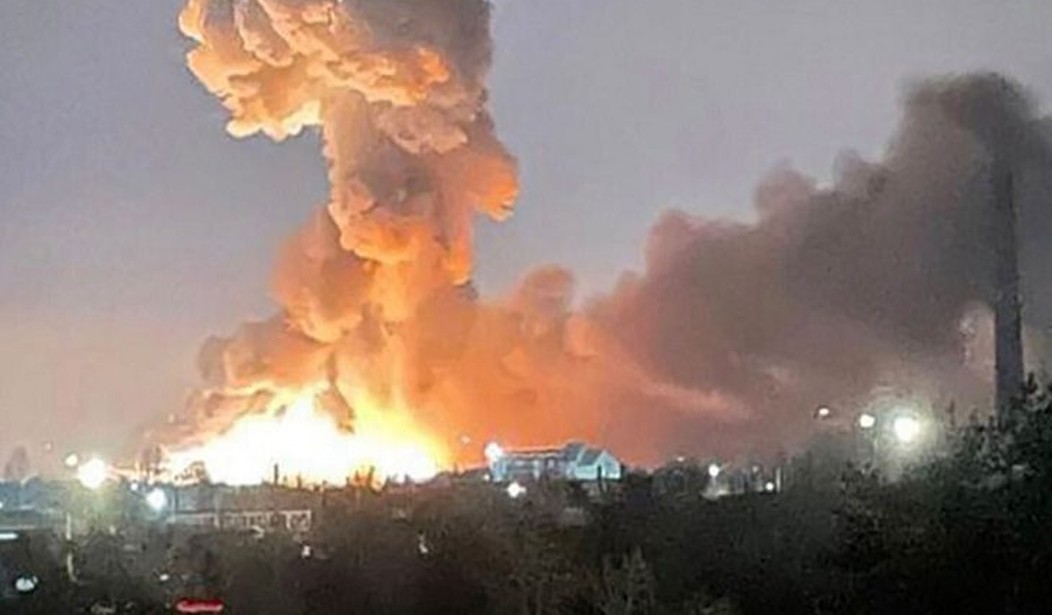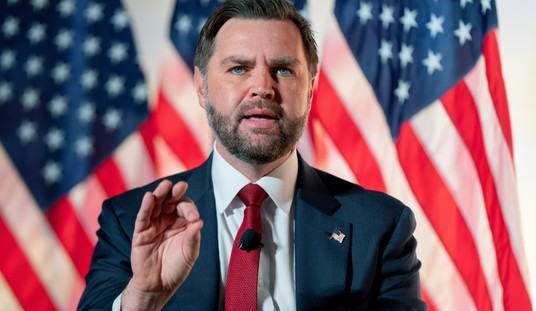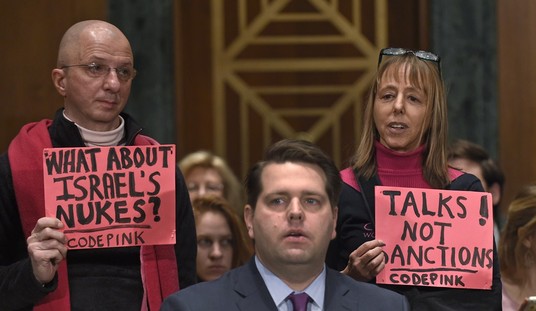There’s a growing amount of worry floating around these days on U.S. involvement in Ukraine, especially on social media where people seem to have ample time to fret over such mistaken concerns.
The concerns are multiple but center on two areas: fears over potential U.S. military involvement and our country sending so many billions of dollars in military weaponry to a foreign nation so corrupt that an energy company there once paid Hunter Biden $1 million a year to not do much of anything but share his family name with its board.
In that case, it takes two parties to form a corrupt partnership and no one on the American side, including our First Amendment-loving media, has done anything yet to prosecute the Big Guy’s son for his international influence-peddling operations.
As far as Americans know, Hunter still has investment millions in China, which Joe Biden says he never discussed with his son despite photos of him socializing with those partners and taking Hunter with him to Beijing on Air Force Two in 2013 to seal one big deal.
Speaking of U.S corruption, how did Nancy Pelosi become a multi-millionaire, the sixth-richest House member with a fortune estimated well above $100 million on a congressional salary of $221,000 a year when she was Speaker and $192,000 other times?
One of the most hilarious moments of the Barack Obama-Joe Biden administration, which wasn’t a funny time, was the Chicago pol lecturing Afghanistan’s leader, Hamid Karzai, on the need to fight corruption in his country. Legendary Windy City journalist Mike Royko once aptly wrote of the Democrat machine that Chicago’s city motto Urbs In Horto (City in a Garden) should be changed to Ubi Est Mea (Where’s Mine?).

If the United States ever stopped dealing with foreign countries with corruption, we could in fact save countless billions in foreign aid. This would currently total $14 billion just in military aid to Ukraine since February, including some $3 billion announced last week.
The U.S. government could keep those vast funds stateside to be embezzled and stolen at home where the FBI is currently tracking down hundreds of millions in COVID relief fraud under the Biden administration.
Distaste for foreign corruption is a grand talking point that sounds wonderful and everybody who doesn’t get some is against it. But it’s not a legitimate reason now not to help a former Russian satellite avoid becoming one again. That would strengthen both a major strategic opponent and Vladimir Putin, its president-for-as-long-as-he-can-hold-it.
The United States, of all countries in history, should understand the life-saving potential of one country helping another to obtain and keep its independence and freedom to make its own mistakes.
In the autumn of 1781, after seven long years of painful revolution, George Washington’s ragtag Continental Army cornered the British at Yorktown.
In that war’s beginning, no one gave the American colonial resistance much chance against what was the world’s most formidable military force, including German mercenaries.
After a 22-day siege and the appearance of the French fleet offshore with thousands of troops, Gen. Charles Cornwallis was convinced to give up Britain’s attempt to snuff out the fledgling American democratic experiment. He surrendered Oct. 19.
Truth is, a proper national foreign policy is not fueled by idealism alone. Recall Jimmy Carter’s disastrous diplomacy based on “human rights.”
France had its own interests in helping the American rebels make Great Britain somewhat less great. And so, as it turns out, the United States has its own compelling national security interests in helping Ukraine repel invaders once thought to be among the world’s top militaries.
Putin, a KGB colonel during the humiliating collapse of the immense Soviet Union, has messianic visions of forging an enduring Putin legacy by reconstituting a Greater Russian sphere, beginning with Ukraine.
As with Adolph Hitler, no one seriously believes the Russian leader would halt his dream-catching machine after a successful conquest in Ukraine. The best place to thwart that is in Ukraine.
Putin seized Crimea under Obama, two provinces of Georgia before that, and his imperial tractor-beam is working well on Belarus. A prime next target could be Moldova, which claims neutrality but is a candidate to join the European Union. Putin sees such associations as a threat in his neighborhood.
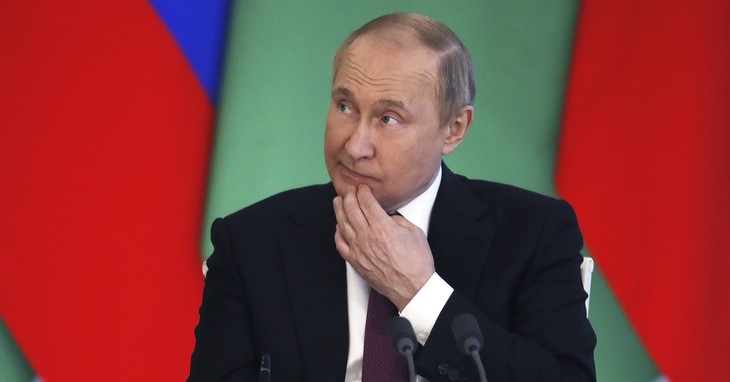
The trouble for him and potential threat to U.S. war involvement is that other possible Putin targets, like the Baltic states or even Poland, belong to NATO, which has 30 members, not counting applicants Sweden and Finland.
NATO’s Article 5 obliges all members to come to the aid of any other attacked. It’s only been used once since 1949, in Afghanistan after the 9/11 attacks.
Most everyone outside Ukraine, including Putin, who swallowed his intelligence service’s rosy predictions of Ukraine’s collapse, expected the far larger, better-equipped Russian army to easily slice through its neighbor’s military, topple the elected government, and install puppet rulers.
And the Russian leader never anticipated a unified allied response.
But as Gen. Cornwallis learned in the 18th century, never underestimate the will of a people fighting for their national survival.
Ukraine has more than held its own, sinking a Russian flagship, killing a dozen senior officers, and destroying installations, aircraft, and ammo dumps even behind Russian lines. Every few days partisans within Russian territory assassinate collaborators, often with car bombs.
Much of these unexpected successes are thanks in large part to vast quantities of modern military aid from 30 countries, mostly NATO members. Like the U.S., they’d much rather fund and funnel a proxy Ukraine army taking on Russian forces than do it themselves in their own country.
We have criticized Joe Biden frequently here for his divisiveness, his lack of foresight, serial hypocrisies, excessive economic policies, and his lethally inept and dishonorable exit from Afghanistan.
But one thing he’s done – perhaps the best thing he’s done – is keep the country out of any new foreign military adventures, beyond the targeted deployment of special operators. Obama and Biden mocked Mitt Romney in 2012 for declaring Russia a major geopolitical foe. “The Cold War’s been over for 20 years,” Obama said.
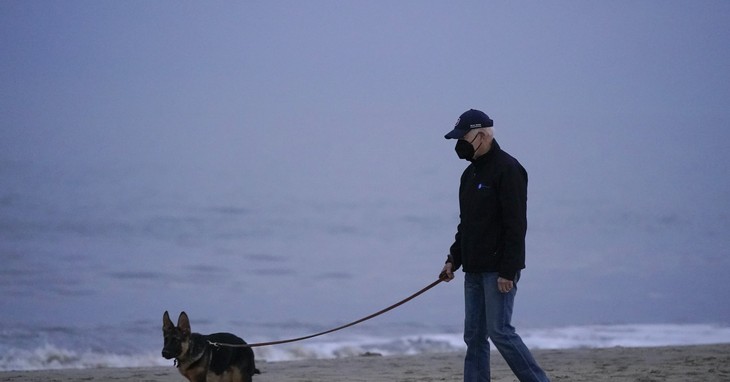
Biden was initially late in February to realize the potential U.S. benefit in Ukraine. But now, 10 years after dismissing concern for Moscow’s ambitions, he and NATO allies are seriously depleting Russia’s military, manpower, resolve, and hopefully expansionist ambitions by sending modern weapons and technology for Ukrainians to employ. More than two dozen other countries have also sent equipment.
This not only doesn’t risk allied lives, it also creates domestic jobs. And that weaponry has very effectively destroyed Russian equipment and Russians. Russia has lost nearly 1,700 Russian tanks, along with the men in them. British intelligence estimates that 50,000 Russians are now dead or wounded.
Ukraine has started a tour across Europe showing destroyed Russian gear and promising to recycle it as scrap.
Mission creep led American administrations to spend trillions attempting nation-building in Afghanistan and South Vietnam, neither of which was a viable nation. Ukraine already is.
In fact, Putin just had to order the recruitment of 187,000 new troops, in addition to mercenaries of the Wagner Group.
Confronted by stiff Ukrainian resistance, Putin had to abandon his plan to capture Kyiv and the west. He now seems focused on consolidating control in the East and South, possibly with phony referenda.
Historically, term limits for Russian rulers were set by firing squad, poison, and prison. From the outside, Putin’s control of power appears strong for now. However, a long, drawn-out war with thousands of casualties and economic pain from international sanctions could change that.
The key remaining question is in the West, including Europe. How long will its resolve to funnel fast war supplies endure, especially during a cold winter when Putin employs his long-planned strategic lever of cutting off natural gas supplies?
For his part, Joe Biden has vowed to stand behind Ukraine and his commitment to supply its enormous needs for war materiel.
U.S. media doesn’t cover this much. But more than 13 million civilians have been displaced by the Russian invasion, the largest refugee crisis since World War II, including seven million hosted outside Ukraine. Reconstruction cost estimates so far exceed $135 billion.
But then, Joe Biden has vowed many things, only to abandon his promises when convenient with no apparent remorse. He still calls his lethally botched Afghan evacuation an extraordinary success.
A year ago last week, ABC News’ George Stephanopoulos asked the president how long U.S. forces would stay in Afghanistan to run an evacuation after the Taliban returned to power.
Biden replied: “If there’s American citizens left, we’re gonna stay till we get them all out.”
We didn’t.

